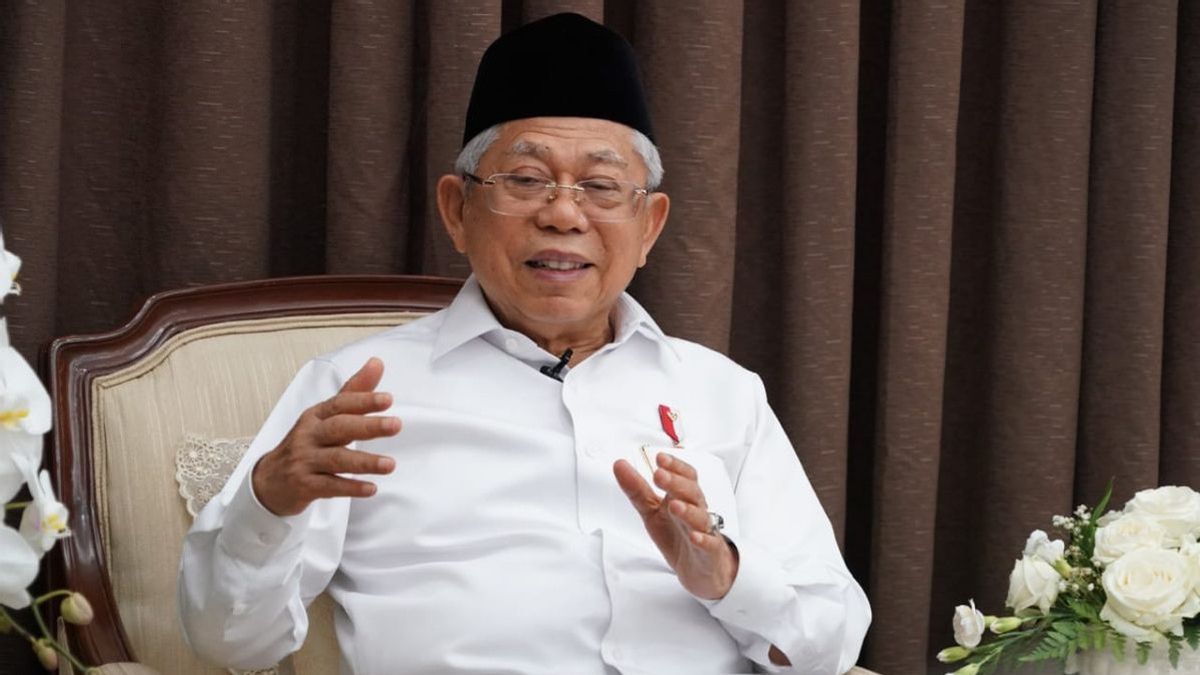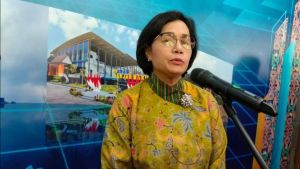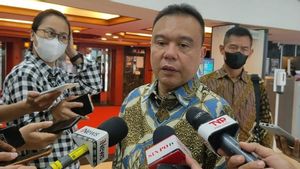JAKARTA - Vice President Ma'ruf Amin ensured that the development of the sharia economy could be in line with the development plan because integration is an important thing so that the sharia economy can develop.
"The government continues to ensure and oversee the sustainability of Islamic economic and financial developments by integrating the Islamic economy and finance in the 2025-2045 RPJPN and 2025-2029 RPJMN, as the main program for productivity-based economic transformation," he said in remarks at the Center for Sharia Economic Development (C-SED) Institute for Development of Economics And Finance (Indef) online, Tuesday, September 3.
Ma'ruf hopes that the elected president Prabowo Subianto can continue the development of the Indonesian sharia economy during his future leadership.
"I hope this becomes a strong foundation for the sustainability of Islamic economic and financial development in the future," he said.
Ma'ruf explained that the future of Islamic economics and finance in increasing national economic capacity is very promising.
By 2030, the contribution of the sharia economy to the national GDP is estimated to reach 10 billion dollars or equivalent to 1.5 percent of the national GDP.
"The future sharia economy will accelerate in line with the development of digitalization and in line with the concept of a green economy that prioritizes sustainability and environmental sustainability," he explained.
Even so, Ma'ruf said that Indonesia currently has a vision to become a big player in the economy and Islamic finance at the global level and is followed by various challenges.
In general, Ma'ruf said, the low level of literacy and public understanding of Islamic economics and finance is still one of the joint homeworks.
"We are still facing inadequate regulatory frameworks, the lack of incentives for halal industry players and sharia entrepreneurship so that there is still no optimal synergy and integration of the halal industry, sharia finance, and sharia social funds because Islamic social funds have great potential," he explained.
SEE ALSO:
Ma'ruf gave an example, such as Zakat of around Rp. 270 trillion per year, waqf of Rp. 180 trillions and this is only the potential, it has not been realized. Therefore, data on the management and distribution of Islamic social funds also needs to be continuously increased in order to encourage poverty alleviation efforts.
"In the future, Islamic economic and financial development strategies will focus on synergizing the four main pillars, and supported by strengthening regulations and institutions, scientific and digitalization innovations, and increasing literacy," he explained.
The English, Chinese, Japanese, Arabic, and French versions are automatically generated by the AI. So there may still be inaccuracies in translating, please always see Indonesian as our main language. (system supported by DigitalSiber.id)














